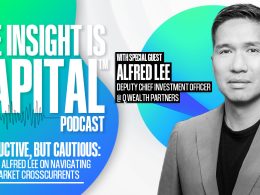This article is a guest contribution by Michael Lewitt, by way of John Mauldin's Outside the Box.
Was it only last week I was expressing outrage that US taxpayers would have to pick up the check for Greek profligacy in the form of IMF guarantees? This morning we wake to up the sound of $250 BILLION in IMF guarantees for a European rescue fund, most of which will go to countries that are eventually (in my opinion) going to default. That is $50 billion in US taxpayer guarantees. Not sure what that translates into for Britain or Canada or Australia.
I can swallow the Fed dollar swaps to the ECB. Don't really like it, but I can deal with it, as I don't think it will ultimately put US tax-payers at risk, as long as the swaps are in dollar terms. But the IMF bailout is just wrong.
Interestingly, the euro shot up on the announcement in what was now clearly short covering. As I write this, it is almost back down to where it started. That seems to me to be a vote of "I don't believe you." We will see. But if the ECB actually goes ahead and floods the market with liquidity, that will be very good for all types of risk assets.
Note that in last Friday's letter I quoted Trichet where he said we would not do what he agreed to do over the weekend. What a turn-about. So much for ECB independence. The European leadership must have realized the wheels were coming off and brought out the nuclear option in order to stave off a very serious crisis. In my opinion, this buys time but does not solve the problem.
The eurozone leaders assume that this is a liquidity problem. It is not. It is a solvency and balance sheet problem. You do not solve a debt problem with more debt. This only shoves the football a few yards (or maybe I should say meters) down the field. And it is going to cause a MASSIVE misallocation of capital once again which will create more imbalances that will have to be dealt with. Ugh.
Now, with that off my chest, let's turn to this week's Outside the Box, which is an essay by a name that is familiar to readers, Michael Lewitt. He has written a brilliant book, the Death of Capital, which should be on your short reading list. I asked him to give us a note for Outside the Box and he graciously complied. It is a thoughtful and fun read with wonderful lines you will want to read again peppered all the way through this all-too-short piece. The book is a ringing indictment of both the regulatory and money management worlds. Get it at Amazon.com.
Your how can I get even more outraged analyst,
John Mauldin, Editor
Outside the Box
The Death of Capital
Michael E. Lewitt
Two years ago, John Mauldin was kind enough to publish my initial proposals for reforming the financial system. Entitled "How to Fix It," the April 2008 issue of The HCM Market Letter raised a lot of eyebrows and upset many established interests on Wall Street with its outspoken call for financial reform. Among the changes I called for were the following:
- Compensation reform to better align the interests of Wall Street executives with those of society at large.
- Requiring private equity firms and hedge funds to be registered with regulators.
- Taxing private equity partners' carried interests at ordinary tax rates instead of capital gains tax rates, and prohibiting private equity firms from going public.
- Sharply reducing the leverage of financial institutions (including hedge funds).
- Banning off-balance sheet vehicles such as Structured Investment Vehicles.
- Reining in quantitative trading strategies.
- Reinstituting the downtick rule with respect to short selling stocks.
At the time these proposals were considered controversial; in retrospect it is clear that they were not aggressive enough. While many of these suggestions have been adopted or are in the process of being adopted, much more needs to be done to stabilize the financial system.
Since the publication of that essay, I have written a new book that is being published by John Wiley & Sons this month. Entitled The Death of Capital: How Creative Policy Can Restore Stability, the book explores the origins of the 2008 financial crisis and expands the call for reform. In addition to the recommendations listed above, the book calls for additional regulatory changes including:
- Derivatives reform, with a preference for an outright ban on naked credit default swaps or, recognizing that such a ban is politically unrealistic, calling for such contracts to be listed on exchanges and requiring substantial capital commitments by their participants.
- A Tax on Speculation that would apply to the types of speculative activities that have so badly damaged the American economy, including naked credit default swaps, leveraged buyout, quantitative stock trading strategies and other stock and bond transactions.
The book also takes an unvarnished look at the private equity industry, which has been a prime abuser of capital as it has diverted an inordinate amount of capital into unproductive uses while producing (at best) mediocre returns and charging unjustifiably exorbitant fees.
The recent problems experienced by Goldman Sachs highlight just how far the financial system has lapsed from the days of gentlemanly capitalism. Change in itself is neither good nor bad – it is an inevitable feature of human life and it must be managed. Change on Wall Street has by and large been managed poorly by being left to the most self-interested forces. My April 2008 essay began with a quote from Adam Smith that should be etched into the brains of every Wall Street CEO and included in the oath of office of every new member of Congress. The quote is from Adam Smith, who is best known as the author of the bible of capitalism, The Wealth of Nations, but who wrote an equally important book two decades earlier entitled The Theory of Moral Sentiments. Smith wrote the following:
"This disposition to admire, and almost to worship, the rich and the powerful, and to despise, or, at least, to neglect, persons of poor and mean condition, though necessary both to establish and to maintain the distinction of ranks and the order of society, is, at the same time, the great and most universal cause of the corruption of our moral sentiments."
What Adam Smith pointed out more than two hundred years ago is equally true today – our society, fed by the media, worships wealth at the expense of other values that are far more important to a cohesive and healthy society. The entire mission of The Wealth of Nations was to try to recognize man for what he is – a social animal who is reliant on the good opinions of his neighbors – and to develop the optimal economic system to harness that human essence for the good of all mankind. Smith believed that system was a free market, and history has by and large proven him correct. But the United States has strayed from a free market model to a system that privatizes gains and socializes losses.
During the last two decades, the American economy has suffered from a series of legal, fiscal and monetary policies that have favored speculation over production. The result has been the financialization of the economy, which has been characterized in economic terms by an unhealthy growth in debt at all levels of the economy and in cultural terms by the monetization of all values. Entities such as Fannie Mae and Freddie Mac were perfect examples of how the free market had been corrupted before the 2008 financial crisis. The crisis itself demonstrated, however, that the logic of the system required all large institutions to suffer from a similar flaw. Yet these flaws were not inevitable, even at the height of the crisis; they were deliberate political choices. While stakeholders of some institutions, such as Lehman Brothers, were wiped out, those of other firms were not and some were even made whole. The most egregious example of this was the handling of American International Group (AIG), the insurance giant that morphed itself into a giant hedge fund while enriching the officials responsible for some of the most ill-informed judgments in financial history. There was no reason for the government to handle the AIG failure in a manner that made whole foreign counterparties and Goldman Sachs; alternatives including offering a blanket credit guarantee to the insurance company that would have calmed markets and obviated the necessity of the company paying out one hundred cents on the dollar for its reckless insurance bets on synthetic mortgage obligations. While the result – avoidance of the extinction-level-event that an AIG failure would have been for the financial system – was the correct one, the means by which it was achieved furthered the agenda of socializing losses and privatizing gains and bred deep distrust in the government and the system.
Much of the crisis could have been avoided had policymakers and investors operated under realistic assumptions about how markets and economies work. Several years ago, former Federal Reserve Chairman Alan Greenspan described the failure of interest rates to react in the manner he expected as a "conundrum." We now know that Mr. Greenspan was operating under a false set of assumptions about human nature, as well as a misguided understanding about how market participants behave. As noted in my book, had Mr. Greenspan been an acolyte of Hyman Minsky instead of Ayn Rand, he would have been less susceptible to such a fatal conceit. But beyond that, the real conundrum in modern markets is the continued reliance of investors and policymakers on two false mantras. The first is that markets are efficient; and the second is that investors are rational. Both assertions are so decidedly specious that one has to question both the sanity or the intelligence of those who cling to them. Yet these two bugaboos are supported by reams of academic research and much of the investment establishment! It is my contention that these delusions are why capital continues to be terminally mismanaged by the professional investment class. With few exceptions, professional investors in all asset classes have produced at best mediocre returns for their investors. There are exceptions, of course, but they are essentially of statistical insignificance. Private equity is one asset class that I pay particular attention to in my book, but the same criticism can be applied to virtually all asset managers. The reality is that most managers do a very poor job for their investors. This is not only because they cling to the false Gods of market efficiency and investor rationality; it is because they misunderstand the true nature of capital.
Capital is not a thing or a category; capital is a living, breathing phenomenon. Capital is an expression of the human relationships that generate economic value. Just as these relationships are dynamic, so is capital. The most important attribute of capital as it functions in the real world is that it is a relationship; as such it has the capacity to change form. This is often described as its liquidity function. Capital is also a human construct; it is not something found in nature or subject to scientific laws, despite the misguided attempts of today's rocket scientists to claim that it possesses such qualities. Most importantly, capital is unstable. If capital were better understood for what it is, it could be better managed and regulated.
Because capital is not properly understood, however, it is abused. And the consequences of that abuse are not theoretical – they are human. Our ill-begotten economic policies have exacted an incalculable toll on the citizens of this country and around the world. Millions of people have lost their jobs and their homes. The official jobless rate is still around 10%, and the real jobless rate is closer to 20% when discouraged and underutilized workers are included. Economic hardship and the stresses of unemployment have led to the break-up of families and higher rates of addiction and suicide. At the end of last year, one in eight Americans was receiving part of his or her nutrition from food stamps, including one in four children. Communities around the country are being destroyed by house foreclosures, and the American heartland has been decimated by the failure of the American automobile industry. And our country is facing even greater challenges ahead in terms of caring for its aging population, dealing with unsustainable fiscal deficits, reducing the growing cost of healthcare, not to mention the incalculable costs of dealing with the inevitable but unknowable Black Swans that are bound to occur, such as Gulf oil spills, terrorist attacks, or nuclear proliferation. Only a sound financial system will place us in a position to deal with these challenges. The Death of Capital is intended to contribute to the discussion of how we achieve such a system.
Copyright (c) 2010 John Mauldin, Outside the Box
Source: The Death of Capital, Outside the Box, May 10, 2010
http://www.investorsinsight.com/blogs/john_mauldins_outside_the_box/archive/2010/05/10/the-death-of-capital.aspx












